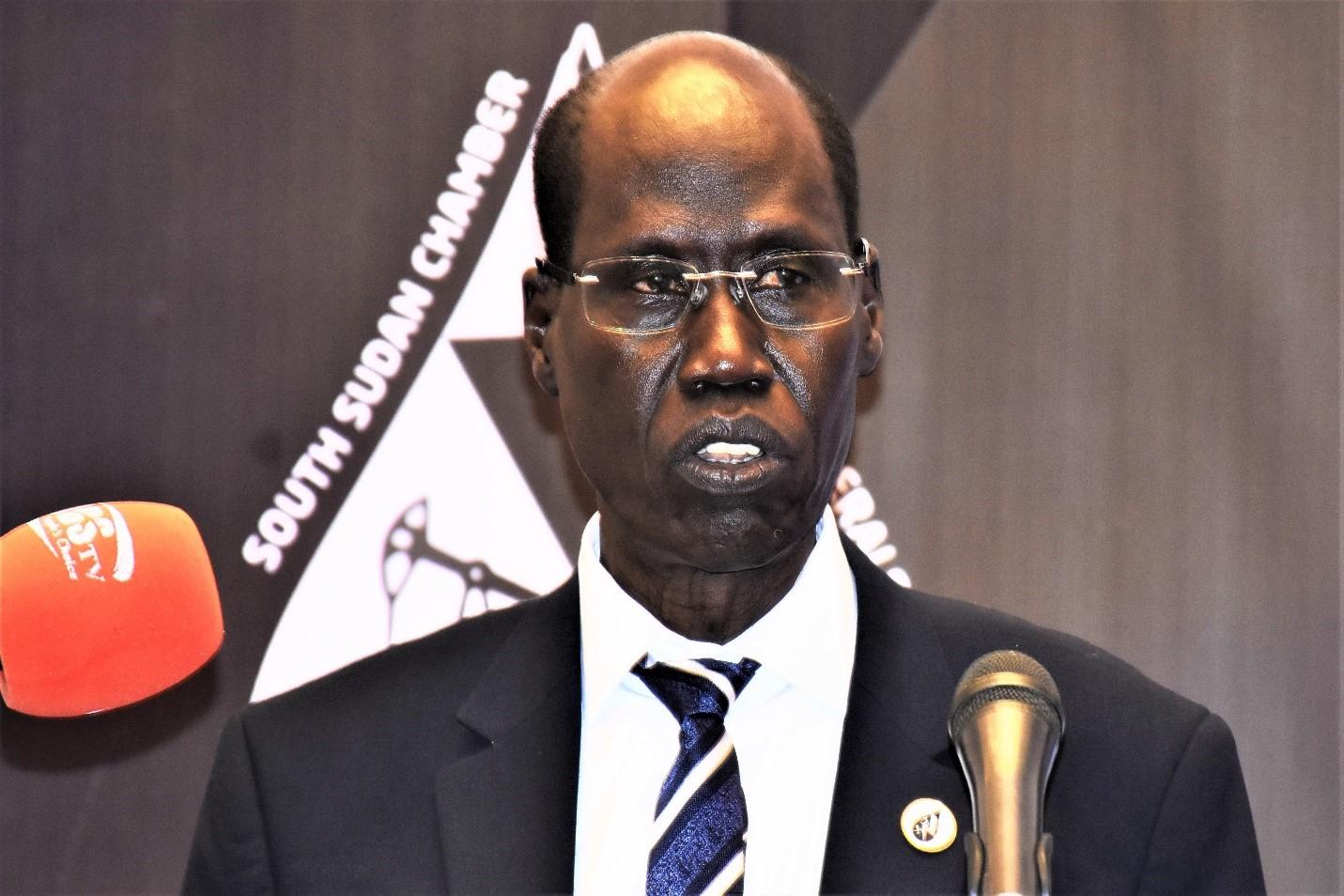James Atem
Africa-Press – South-Sudan. The Central Bank ordered all transactions to be conducted solely in South Sudanese Pounds (SSP), a bold step since abandoning the fixed exchange policy in December 2014.
The policy came into force as the SSP depreciated further this year after performing poorly in 2022. Commodity prices have also been rising sharply, especially during last year’s festive season.
As of Friday, December 20, 2023, a United States dollar sold at about SSP700, up from SSP697 last week.
The BoSS said it took the decision after noticing that some institutions owned by the government and private entities were transacting in foreign currency instead of SSP, eroding public trust in the local currency.
But Dr John Akec, a professor of economics and vice-chancellor of the University of Juba (UoJ), doubts whether the policy will ever save the losing pound.
Prof Akech argues that because the SSP continues to fall in value, businesses such as airlines and hotels, among others, are unable to trust the local currency.
“I am not sure if it is the right policy to ban the use of the dollar as a means of exchange,” Prof Akec said in a Twitter post shared on Friday.
“Traders like airlines and hotels are unable to trust the SSP which is constantly losing value. “The coping mechanism in the face of depreciating national currency is for the economy to dollars,” he added, emphasizing the need to use the hard currency with SSP concurrently.
Early this month, the Central Bank announced it would maintain headline inflation this year at a single digit of 8 per cent with a margin of less than one per cent.
However, another economist, Dr Abraham Maliet Mamer, said that the bank’s goal was impractical given other factors that contribute to the escalating inflation.
“So, what are you going to do to bring this inflation down or maintain it between 9 and 7 percent or at 8 percent? “It is something I think is wishful thinking because they have not explained how they are going to maintain it,” Mamer said in an interview with City Review Digital early this month.
Dr Mamer said the Central Bank needed to coordinate its policies with the Ministry of Finance and Planning to ensure effective implementation.
The South Sudanese economy has continued to suffer from the impacts of the civil war that has created a serious humanitarian crisis, displacement, and instability since 2013, according to the World Bank.
The COVID-19 pandemic and the drop in the price of oil, which is the main source of revenue for the government, have also been blamed for the current economic stagnation.
The Ukraine war, which has disrupted supply chains, has had an impact on the prices of goods in the country’s markets.
The National Bureau of Statistics (NBS), the national agency, said in a recent report that the purchasing power of citizens in two cities including the capital Juba, dropped significantly last year.
The annual Consumer Price Index (CPI), indicated Juba and Wau were the most expensive cities in 2022.
The African Development Bank last year projected that South Sudan’s inflation would increase to 16 per cent in 2022/23 because of drought and higher food prices in neighbouring Kenya and Uganda where Juba receives its imports.
Source: The City Review South Sudan
For More News And Analysis About South-Sudan Follow Africa-Press






